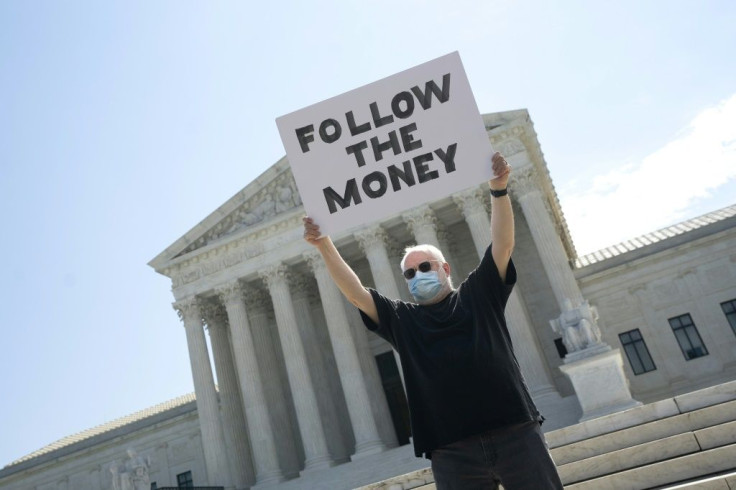Supreme Court Opens Way For Trump Tax Returns To Be Turned Over To New York Prosecutors

KEY POINTS
- Manhattan District Attorney Cyrus Vance subpoenaed Trump's returns as part of a grand jury investigation
- The court ruled 7-2 there's no heightened standard for the president in a criminal investigation
- The court denied three House committees access to Trump's financial information
The U.S. Supreme Court ruled 7-2 Thursday President Trump must turn over his tax returns to New York prosecutors, saying there's no "heightened standard" protecting the president.
The court in a second 7-2 decision, however, denied access to Trump's financial records by three House committees, saying such issues historically have been subject to political negotiations and that the House committees failed "to take adequate account of the significant separation of powers concerns raised by congressional subpoenas for the president's information."
Both majority decisions were written by Chief Justice John Roberts and were concurred with or joined by Trump appointees Neil Gorsuch and Brett Kavganaugh. Justices Clarence Thomas and Samuel Alito dissented.
The New York decision affirmed lower court rulings. The case now returns to the lower courts.
Trump reacted angrily to the decision, tweeting it was a "political prosecution" and calling New York prosecutors "corrupt."
Manhattan District Attorney Cyrus Vance subpoenaed Trump's returns as part of a grand jury investigation stemming from the payoffs during the 2016 presidential campaign of two women who alleged they had had affairs with Trump, something the president denies.
"The arguments here and in the [2nd U.S. Circuit] Court of Appeals were limited to absolute immunity and heightened need," the court wrote. In a footnote, Roberts said the majority opinion and dissents were not that far apart and the issues need further adjudication at the district court level.
"In the two centuries ... successive presidents from Monroe to Clinton have accepted [the] ruling that the chief executive is subject to subpoena and have uniformly agreed to testify when called in criminal proceedings," Roberts wrote.
The court said a "properly tailored subpoena" does not interfere with presidential duties and the perception of a "tarnished reputation" is not a factor. It also said the president cannot be treated differently than an ordinary citizen when it comes to private papers.
It was the final day of opinions before the court breaks for the summer. The court usually breaks at the end of June.
Unlike most previous modern presidents, Trump has declined to release his returns, citing continuing Internal Revenue Service audits.
The three House committees have said they need the returns to determine whether tax laws need to be overhauled and ethics rules updated. Trump's legal team argued the subpoenaes have no legislative purpose and are just an attempt to investigate the president.
The president's position challenged Congress' oversight ability. In similar previous cases against Richard Nixon in 1974 and Bill Clinton in 1997, the court ruled unimously against the presidents, leading to Nixon's resignation and Clinton's impeachment, but those cases involved criminal investigations.
Trump's former personal lawyer Michael Cohen testified before Congress the president routinely overstated or understated his holdings.
The House Oversight Committee sought to compare eight years of financial documents. The House Financial Services and Intelligence committees said they were investigating alleged risky lending practices by Deutsche Bank, one of Trump's main lenders.
Arguments were held by phone two months ago amid the coronavirus pandemic.
(Trump v. Vance No. 19-635)
(Trump et al v. Mazars USA No. 19-715)
© Copyright IBTimes 2025. All rights reserved.






















